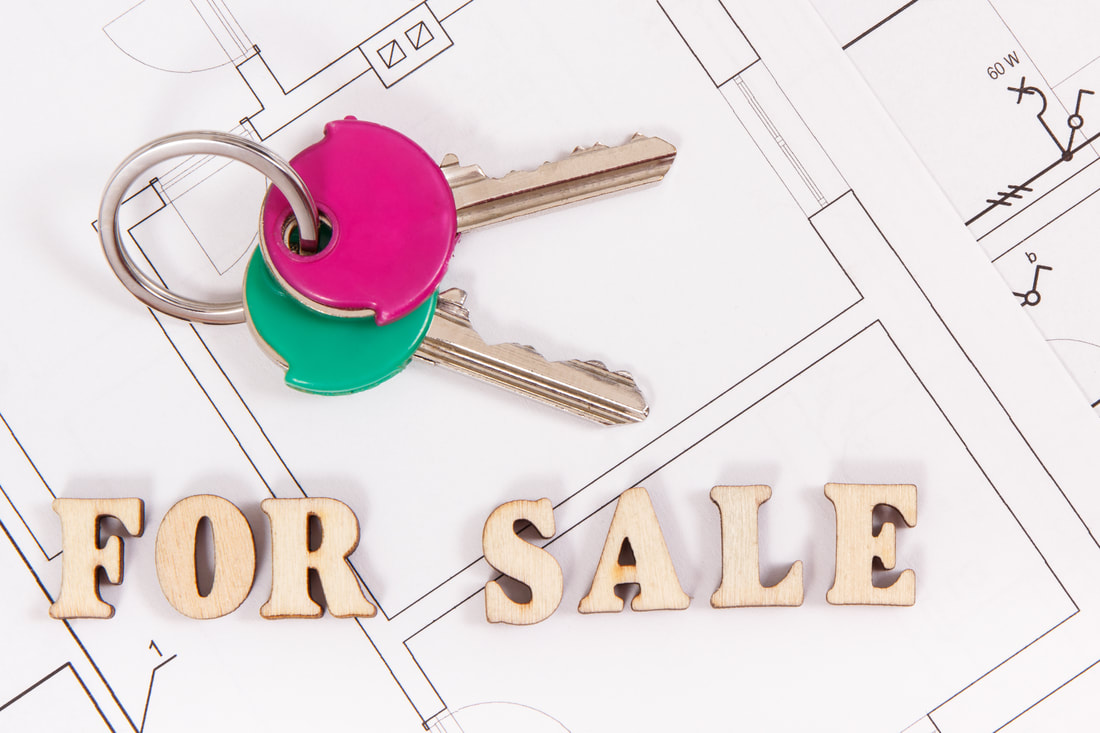Everyone understands the concept of paying rent, so to begin with a great opening question to our real estate student is, ìHow would you like to collect that rent as opposed to pay it!î Naturally this question gets their attention and we can begin to open the door of enlightenment. I like to use the duplex example to illustrate the two homes under one roof concept. Some people are unfamiliar with what exactly a duplex is and how it works, so I simply state that quite often you find duplexes composed of one building that has two bedrooms and one bath on each side, all under one roof, some larger, some smaller.
These are as easy to finance as a single family home and in many cases allow you to qualify for a larger loan amount which leads to using leverage and more of other people's money to get ahead faster in life. Using an example lets say you find a duplex for $150,000 (California is higher), your loans interest rate is 6% that would cost $899.33 a month to pay principle and interest back on a 30 year loan. They would have to insure it, so we use an average of $5 per $1000 of home value to average insurance costs. So $5.00 x $150.00 = $750.00 a year for insurance. We divide that by 12 months to get a figure of $62.50 a month for insurance. We also have annual taxes that are based on what the home is worth multiplied by a millage, or mill rate. Let's use a tax rate of $11.00 per $1,000 of the homes assessed value: $11.00 x 150 = $1,650.00 a year. Now divide that by 12 months to get a monthly tax of $137.50 and by adding principle, interest, taxes and insurance (P.I.T.I), we get a total monthly mortgage payment of $1099.33. Now when you rent one side out for (in many cases, approximately $750.00 a month) you are left to pay only $349.33 out of your own pocket every month. When I get this point firmly affixed to the gray matter of their brain, it becomes clear that this amount is much lower than the amount of rent they are now paying to live under someone else's roof and rules. Now the questions start coming in the following order. Well? How do I buy something like this? The answer most often begins with, "By getting pre-qualified for a loan," and I go on to say you will need to gather and bring the following things to the bank loan officer to get started: Copies of three years of tax returns for first time buyers + schedules and W2 forms Copies of most recent pay stubs within the last 30 days Copies of your most recent three months of bank statements A list of all creditors with name, address and account numbers With these initial documents the lender can begin to process your application for a loan. They will determine your assets and liabilities (net worth) as well as verify where you live now, your credit history and a host of other information that begins to validate your existence and ability to borrow money now and in the future. Once they've had a chance to review and verify your information they can pre-approve you for a certain loan amount. Once your approved you can begin your search for a home of your own, typically as a first time home buyer you will find that there are programs that let you put as little as 3-5% percent down in order to buy a home that satisfies the lender's guidelines according to its value and conformity. Now on a $150,000 loan the down payment can be anywhere from $4500.00 - $7500.00. There are ways to lower these costs and a great place to start is by attending a first time home buyer's class. These classes introduce you to the basics and give you further information on programs that are currently available that may offer you the opportunity to buy with nothing down! So with that said, the next step is to get to a free class and get familiar with the process. Often I recommend going to the class before going to see a lender so you don't appear so green and unprepared upon your initial introduction. Since I usually find these poor souls wondering and wandering in the land of the lost, the next frown I see come over them is the realization that they just don't have the money required to start. So the question comes up as to where to get it. I usually ask about savings, whether parents or grandparents can help, if they can sell valuable possessions or take second jobs, get grants, gifts, use trust funds, personal loans or co-signers, or a combination of these alternatives with a complimentary loan program usually gets the ball rolling. Options and hard money lenders usually come later as alternative funding and acquisition sources, so I won't confuse any one with those now. The bottom line is this: If someone wants something bad enough there is always a way! The nice thing about duplexes is that the lender will take into account the fact that 75% of the rental income from the other side of the property can be used to offset your qualifying ratios, so in this case they can use 75% of the rentals $750.00 income to reduce the amount you must earn to qualify for what appears to be an unaffordable loan. Seventy-five percent of $750.00 equals $562.50. Now subtracting that amount from the original mortgage payment of $1099.33 leaves you with a payment of $536.83 which the bank says you must be able to repay every month out of your own pocket. You can do this! Can you begin to see how with a little information, effort and belief you can actually own something and pay less than what you are currently paying in rent? Let's continue on with the way things begin to unfold once you begin the journey. Starting with the day you close the deal and become the new owner you will see that you now have just created a passive income stream that gives you an extra $750.00 a month without you having to punch a clock or trade a certain amount of hours to earn the money. Your new asset works for you day in and day out constantly generating income for you while you go and do other things. This is leveraging your time and money in a very beneficial way! You also will notice that at the closing of your purchase that the old owners who sold you this property had to prorate or give you a share of the rents due and any security deposits that the tenants had given to them. Now add to that the likelihood that your first house payment won't come due until about a month and a half after you move in and you find yourself with, low and behold, extra money, probably for the first time in quite a while! Let's calculate it using simple math. Assuming you close on the 15th of the month, you will have 45 days before your first payment comes due, you will be credited with 15 days of rent, you will receive all security deposits of the tenant and you will receive another month's rent on the first of the month from your tenant and you yourself will have no rent or house payment of your own to make for another whole month. What does all that add up to? Let's break it down: Fifteen days of rent equal to $375.00 A half month's rent as a security deposit equal to $375.00 A full month's rent in another 15 days equal to $750.00 No payment to the bank for another 30 days and you're not paying rent to anyone any longer, so you keep whatever you normally would have had to give to someone else as rent that month (let's say that was $500.00). Another payment to you for $750.00 from your tenant as well as you having to make your first mortgage payment of $1099.33 on the 1st of the month which comes 45 days later. Side note: If you decided to rent your second bedroom to a roommate, they would pay $500.00 a month and half your utilities as well, thus your basically living and owning this property for free. Say goodbye to all those student loans as you divert all these freed up funds to pay off loans instead of a landlord! Adding these up, we get $375.00 + $375.00 + $750.00 + $750.00 + 500.00 not paid to your old landlord. That equals $2,750.00 that you will now have as a result of your first month and a half of ownership. Now subtract your mortgage payment of $1099.33 and you are left with a reserve fund of $1,650.67 in your account. Take your parents out to a steak dinner and celebrate - you've earned it! Let's review: You decided to buy your own home, you made the choice early to offset expenses by looking at a multiple income property, you went to the homebuyer's class, you went to see a lender and got pre-approved for a loan, you saved or arranged to have the necessary amount required to buy and you hunted, searched and analyzed more than a few properties in order to find a good one that would satisfy your criteria. Your next phase is to begin to realize that you are now responsible for the welfare of another family or person due to your willingness to become a landlord. Your tenants pay rent and expect you to take care of their housing needs. If you chose a good property by carefully looking at plumbing, heating & A/C, electrical, foundation, structure, roof, location and price, then you should be well positioned to be able to successfully manage these duties. Often, you as the new owner will begin to make improvements to the property such as painting, installing new carpet and doing some inexpensive landscaping and repairs. These are the things that add value to your property and keep your tenants happy while at the same time not breaking the bank! With $1,650.67 in your bank account, you're not exactly Donald Trump just yet, but you're getting there! Smart landlords establish 6 month reserve accounts and/or contingency funds, which protect them in times of vacancies or when expensive unforeseen repair bills pop up in addition to regular planned-for maintenance items. What I'm saying is don't spend your reserves frivolously. In my case, a steak dinner is a tradition but the major portion of your funds should only be used to build, protect and enhance your asset's ability to produce and sustain income generation. By taking on responsibility in the housing market at such a young age, you will have some added benefits and opportunities coming to you. Let's look at what starts happening: the first thing is you have overcome fear and lack of understanding by acquiring your first property. In addition, you have begun to offset expenses while saving more money, you are establishing excellent credit while building assets, and you're gaining tax advantages while getting management, home buying and repair education at an early age. These are outstanding life skills that you can employ for the rest of your life and the longer the period of time that you have to use them, the further the compounding effects will help you to go. This type of initial home-buying strategy can and does lead to further opportunities to grow and achieve further benefits besides those already mentioned. Individuals who learn to accept responsibility early will by nature grow more mature throughout the process and in effect create for themselves a higher status in the minds of others by being looked upon as a current homeowner and landlord. Once established, you will become known for what you can do. If you were single when you undertook these challenges, then you will appear and become more self-sufficient to the opposite sex. What do I mean by that? What I'm saying is when you meet someone who may become your spouse in the future, they will recognize your ability to provide for their safety and protection and they won't question or complain about your fooling around with wild ideas of becoming educated in real estate now. They will accept that this is something you do and will respect your ability to manage this part of your life. As time passes on and you find this love of your life and the eventual marriage proposal ensues, the time will come when you're going to want to separate business from pleasure. As a young couple the time will come when you may want to start a family or at least separate yourself from your tenants while moving up to a nicer single family home that suits your changing needs more appropriately. Perfect, because now is the time to consider renting out both sides of the duplex while you begin to investigate your new single family home. How does this phase work? Hold on, I'm getting there! Okay, let's assume it's two years later and you have been living in and improving your duplex all along. Now taking into account that you bought a decent property in a good neighborhood and inflation and appreciation has been adding value in addition to your improvements, your $150,000 duplex should command a new appraised value of $175,000. Let me explain how the value grows: 3% annual inflation multiplied by $150,000 equals $4500.00 the first year. Let's also say that appreciation due to demand also adds 5%, so 5% x $150,000 equals $7500.00. Now $150,000 + $7500 + $4500 = $162,000, which represents the new value for year one. The second year we do the same math on $162,000 and we get $12,960 for year two. Adding that to $162,000 equals $174,960. Okay, I was off by $40.00. Don't forget any improvements and that you may have bought it at a discount because the old owners where motivated and you might find its worth even more. Now over those two years you have also been paying that old mortgage of $1099.33 each month and the principle amount that you owe on your loan has been reduced by an additional $3,965.96, leaving you with a loan balance of $146,034.04. The difference between the new appraised value of $175,000 and the current amount of $146,034.04 which you owe equals $28,965.96. This number represents the equity, or value, that you currently own in the home. Knowing this, it is entirely possible to apply for and receive a home equity line of credit up to the full value of the new appraisal! If you haven't gone overboard on buying cars, boats and running up other revolving debt while at the same time your significant other or spouse-to-be has a job and good credit with manageable debt, than the bank is going to approve this line of owner-occupied credit. Now what you have done is set up a line of credit which can be used to buy a $145,000 single family home with a 20% down payment. This allows you to avoid paying private mortgage insurance (PMI), thereby creating a very affordable new mortgage on your new family residence. NOTE: Do not confuse homeowner's insurance with private mortgage insurance. PMI protects the lender while homeowner's insurance protects you. When you put down 20% of value on a home's purchase in the form of a down payment, you are in effect protecting the lender from yourself because if they foreclosed on you for non-payment, they could sell the home fast for less than full value and still be paid in full. Don't pay for private mortgage insurance if you can avoid it! Let's not forget that as the value of your duplex has risen the rents should also be increasing along the same lines. Now instead of $750.00, you should reasonably expect to get $800.00 per month, per side, which now delivers $1600.00 a month to your bank account. Unfortunately you still have to pay for 28 more years on the original loan amount, so you will make that good old $1099.33 payment as usual. That leaves you with $500.67 left over to pay that new equity line back with. Your new $29,000 equity line which you used as a down payment on your new home costs you $336.71 @ 7% for 10 years. Now $500.36 minus $336.71 leaves you with $163.96 left over to maintain a nice little reserve account for vacancies and maintenance/repairs. This is a good example of how to transition to a secure lifestyle while using your existing asset base to buy more. Review: Break the mold and look at multiple income property to start. Go to a first time home buyer class to get ready. Go to a lender prepared to qualify for an affordable loan amount. Focus your effort on learning how real estate works. Realize the sooner you start, the better off you will be. Offset expenses by renting to others. Manage tenants, deposits and property responsibly. Plan for the future using assets and equity lines to start. Keep reading and learning how to do new things with real estate. Find mentors and use knowledgeable people to help you along the way. I hope this little plan of entering into homeownership has given you some ideas in your quest for independence. Wishing you all the best! Francis Stark #FrancisStark
0 Comments
I want you to buy these two properties and you should be able to borrow most of the money needed (in some cases all the money needed) from banks, mortgage companies, sellers and other investors.
I want you to repeat the same process for a minimum of five years. At the end of the five year period you would know own ten properties worth one million or more dollars and you will owe one million or more dollars on those properties. Now the only thing left is to find people willing to pay off your loans on those properties. Those people are all over the place and they are called RENTERS! At the end of ten to twenty years, what will you have? You Will Have More Than A Million Dollars Worth Of Real Estate That Somebody Else Bought You! And not only will you have a million dollars worth of real estate you will have an income of $100,000 + from renting them out because they are all paid for.. and your income will increase as your rents increase. If you're saying to yourself that a million dollars isn't enough and 100, 000 + of annual income isn't enough, the solution is simpleÖ. BUY MORE! Learn how to get the money The first step to get started is that you should learn the rules of the lenders and their programs that they have available for rental properties. To do this you should spend a few hours or more on the phone calling different lenders and asking them these questions: What type of loan programs do they have available for rental properties? What are the down payment requirements? What is the least amount of down payment required? What does the person have to do to qualify? Do they have any creative financing options to help you buy? Do they have a maximum amount of loans that they will do with one investor? If their program doesn't fit what you're trying to do, do they know of any other lenders who have loan money on rental properties. What are their fees, interest rates, loan terms, closing costs and any other costs of the loan? Once you talk to several lenders you will develop other questions that you should ask and will get a good feel of what you need to do to get qualified to borrow the money. Don't get frustrated! Many lenders will tell you that you can't do it or you won't qualify. Just keep calling more lenders and remember that lender are in the business to lend you money. If they don't lend money they are out of business. The other source and I believe the best source is Seller's financing (In the form of a Contact for Deed, Installment Contract, Seller's Mortgage). Why is this the best? Because you don't have all the costs of a traditional lender. There are generally no loan origination fees, appraisal fees, etc. and the best part of seller financing is that everything is negotiable between you and the seller. How do you get seller financing?Ö You ask the seller if they are open to it?Ö You ask the seller if they would like to earn more on their money than if they put it in the bank? Learn to find the properties Now that we have an idea about financing we have to start looking for the right properties and analyze the numbers. You want to start by trying to find smaller starter home that a young family or couple would like to live in. Here are some ideas where to look and how to find properties. Newspaper ads Real Estate MLS system Driving through neighborhoods Advertise yourself Tell people that you are looking to buy houses.. get the word out Get business cards that tell people that you are interest in buying real estate Ask real estate agents to look for you (if you are an agent, ask other real estate agent to let you know if they know of any properties) This is a short list, but you only need to find a couple of properties a year to make this plan work and this short list will do the job. If you want to find more than a few properties a year you should expand your marketing efforts. Ok, You have now found a property. You have ran the numbers. (Use an Investment Property Worksheet or Real Estate Analyzer Software) and it all make sense. Now is the time to make an offer to buy. Once the offer is accepted you now want to start the third stepÖ Find a renter who will rent out the property. Learn to get good renters Get permission from the seller to allow you to show the property to prospective renters before the day of closing. You should start by advertising in you local paper and contact real estate offices to let them know you have a property available for rent. Select the best renter based on the criteria that you set up and learn to manage the property. Repeat the process to buy more and more houses until you reach your goal. The fastest way to learn is by doing it. This report is short and to the point and doesn't have every single detail in it. The details you will learn as you go. The key to this is to GO and get started. Francis Stark #FrancisStark
Follow That Builder
In many areas of the country, there are builders who build hundreds of houses each year within a fifty mile radius of each other. They build entire communities or are one of three to five builders who build entire communities around big employment centers. This present you with an important opportunity. New Community Builders will typically sell first phases of communities for significantly less than later phases. On one hand, they need to get the cash flow moving. On the other, it is harder to sell at high prices because the community typically consists of dirt lots and construction equipment. Put the hands together and you have a great profit opportunity. The idea is to get in on the first phase of the build out. You will purchase the home at a discount, which gives you built in equity. As the community is built up, you sell the home for a profit at a higher price. While you're doing this, you keep tabs on the builders projects and find another location where you can do the same thing. You'll end up living in each house for a year or more and picking up nice profits along the way. The only real downside is you have to move repeatedly. Tax Consequences I've seen this work well for a number of people who have done it more than once. However, you need to be aware that generating profit this way can have tax consequences. You need to discuss your plans (including projected timing and profit potential) with your tax professional so that you are prepared to deal with any tax consequences. Francis Stark #FrancisStark
Always drive your own car to the property as this might be the only means of escape. On the way make notes on the type of car, color, and license plate number and call the office with this information. Once at the property make sure your car is not blocked and you have an easy escape (no backing-up).
As you are showing the property, always have the client lead you; this allows the property to present itself and keeps the client where you can see them. Make sure they sign-in on the registry and if the office does not have the information on the client, get the information to them. Your office will know you are with a client at this time. Keep your keys and cell phone close and easy to access. If need be, keys can be effective weapon of surprise. If you have a handbag, keep it with you at all times or locked in the trunk of your car. Know the property, not only do you look more professional, but safer; your client does not know all of the exits as well as you should. Take a few self defense classes, as a few minutes head start out of the property means the difference in a safe escape and being trapped. Take the first chance for escape and don't try to talk your way out; keep your advantage. The more time you spend in a dangerous situation means a diminished chance of a safe exit. Let the client see that you have contacted your office and the office knows who you are with. It is also a good idea to have a secret code for trouble such as "Pick up dog food" when you don't have a dog. It is also a good idea to set your phone to vibrate as your client will not know if you are calling or if you are receiving a phone call. If there is an emergency your office can play a vital role. Make sure they have the make of your car, its color, and license plate. If you are using a different car that day, make sure they have its description as well. Make sure your office has your schedule for the day and that you check in on each appointment. If you are hosting an open house, make sure you have a registry book for clients to sign in. See if you can also include the client's car description. Tell the client it is just in case they get a parking ticket and you want to document the reason for parking there or some other reason. Many of these points may already in practice for the profession. Look to these procedures as also a safety concern. These safety tips should become second nature with little thought to be truly effective. Being an agent means sometimes you will work alone. With today's cell phones and e-mail capabilities and some careful thought, you will be safer and will be in contact with help quicker. Francis Stark #FrancisStark
Here's one additional fact. If you don't know what you are doing, you can lose your shirt in real estate investing...like a lot of other people.
That's not to say you can't learn, and it's not to say that people like Carleton Sheets or T. C. and Vickie Bradley can't teach you. What it does mean is that you can't listen to one tape, or read one book and run out the door asking for somebody to please take the contents of your wallet! You have got to take the time and make the effort to learn the facts, steps, and inside information necessary to become successful in real estate investing. However, I realize that those dollar bills are burning a hole in your pocket and you want to get started NOW, so here's a simple way to begin your trek to the top. Let me tell you how Lois got her real estate investing empire started in Austin, TX. She looked around until she found a small, but well-maintained 4-unit apartment complex in a nice Austin neighborhood. The price was right, so, not having the credit herself to swing the deal, she got her dad to cosign with her. Once the place was hers, she moved into one unit (no more rent to pay), the rent from another unit covered the monthly mortgage, and the rent from the other two units was hers to keep. Not exactly a get rich quick plan, but it was a start. Since she still had a full time job, she used the extra money from the apartments to pay off bills and loans, including the mortgage, at an accelerated rate. This gave her leverage to buy another unit, and the rest is history. She now is an Austin slumlord...! Seriously, she has done well in this simple way and has grown her initial real estate investment considerably. In his article, "Buy High Yielding Turnkey Real Estate Investments With Your Signature Alone!", Bill Young, a former bank mortgage officer and real estate investor since 1980 gives valuable pointers in getting started in this sort of deal, sometimes with no down payment required. While wheeling-and-dealing in real estate investments can make fortunes, there is a learning curve required to make the kind of money professionals like Carleton Sheets and T. C. Bradley do. If you are a total newbie and just HAVE to get into real estate investing, you might be well advised to follow the example of my friend, Lois, and start with small, occupied apartment units, perhaps using some of the space as a residence, as she did, and using income from the units for investment growth. Francis Stark #FrancisStark
When a friend started doing the same thing he explained the process to me. It was a way to get a great return on capital, and it was the opposite of buying with no money down. There is no down payment at all when you buy, because you buy for cash.
The Simple Real Estate Formula You probably know that when you buy for cash, you can often get a much better price. With no financing contingencies in the offer, and the promise of a faster closing, sellers are willing to sell for less. You can offer $95,000, for example, on a house that might be worth $108,000. If you can't get it for less than, say, $99,000, you walk away - there are always other opportunities. Once you buy the house, you put few thousand into high-return repairs and improvements. These might include paint, carpet, and maybe asphalt for a dirt driveway. For our example, we'll say you spend $5,000. Let's suppose the house is worth $116,000 now. You're ready for the next important step in this real estate formula. You put it up for sale, targeting buyers who can't get financing easily. You provide the financing. Because you are making it easy for the buyer, you can get more than the $116,000 value for the home - and do it without paying a realtor's commission. Let's say you sell it for 123,000. The buyer needs a down payment of just 5%, or $6,150, and makes monthly payments of $1230 per month. You charge higher interest than the going rates at the banks, of course. This is a win-win situation. Your buyer is able to buy a home instead of renting, and you get a capital gain of perhaps $16,000 after expenses, plus good interest. Your total rate of return will often be over 20%! In our town, the first to do this consistently were a father and son team of lawyers. They saved money by doing their own foreclosures when necessary. Once they foreclosed, they raised the price and sold the home all over again. They made millions. Did you know that if you can get an average return of 18% on your money, you'll turn $75,000 into more than one million dollars in about fifteen years? That's the power of a good real estate formula. Francis Stark #FrancisStark
2. Decide how much you will accept for your home
You may not get the full open-market price for your property as you would with an estate agent, but you don't have to pay estate agent fees and the whole process is quicker which means you save on mortgage and bill payments. Look at the current market value of properties like yours in the same area and decide how much you're willing to accept from a specialist buyer, bearing in mind the other savings you are likely to make. 3. Talk to the companies Always try to talk to the specialist companies rather than just contacting them over the internet. Talking to them gives you a much better idea about how they approach the sale. You can also take this opportunity to ask any questions about the process and to make sure that you can use your own solicitor to check the contract and that you won't be asked to commit on the spot. 4. Meet an agent Most specialist buyers will send someone round to view your house. This allows them to give you an accurate and fair valuation and also gives you the opportunity to ask any further questions. 5. Agree the sale Once you've been given a valuation, you will normally have a set period in which to think about whether you want to agree to the sale. If you decide to go ahead, it's a good idea to get an independent solicitor to look at the contract before you sign. Make sure you know if there are any additional costs to pay, and when you will receive the money. Also find out when you will be expected to vacate the property and whether the company can help you find other accommodation. Getting a quick house sale is as easy as these five steps and can be accomplished in as little as 3-4 weeks, making it ideal for people in a wide range of circumstances, including those going through a divorce or bereavement or those who are in financial difficulty. Francis Stark #FrancisStark
Various permits, forms, and licenses are also necessary for boats, the use of beaches and coastal areas, docks, burning, vehicles and fishing. These will often vary according to county. StateofFlorida.com offers information specific to each of these needs and breaks them down into categories. It also has links to Florida State agencies to help relocating individuals or businesses.
Getting the right insurance for your Tampa Bay Florida real estate property and belongings while you live in Florida is a necessity. The recent rash of hurricanes has inspired the Office of Insurance Regulation to reorganize themselves to serve this important aspect of Florida living. Crosscheck some of their links to make sure that your insurance covers all of the possibilities. Be sure to call or visit the website for the Florida Department of Education to find out how local schools rate in your area. In fact, selecting your property according to school districts may be a good idea if you have, or expect to start, a family in Florida. Each school also has a report on it done by the School Advisory Council Report which rates schools on performance, attendance and various features. Afternoon thunderstorms are a part of life almost everyday for Floridians during the summertime. This is just one of the features of Florida's weather that relocators should know about. Being prepared for Florida's weather will make the transition of relocating much easier. Be sure to ask your neighbors how they prepare for hurricanes and heavy rain. Make sure that you have supplies on hand throughout the year. Also, ask your local authorities about what you should have on hand, what to expect, and who to contact for help. Expect to see a lot more of your friends and families now that you live in Florida. Visiting you will become a vacation for many of them. It may save you money in the long run to buy year passes to some of the attractions in or around your town or city. It also wouldn't hurt to collect some brochures from the local Chamber of Commerce, so you have a mini-library of resources at your fingertips for day trips and exciting attractions. Remember that Florida relies on tourism for one of its biggest economies. Your loved ones will still consider Florida one of the top vacation spots long after you have become accustomed to living in the Sunshine State. Be sure to keep any welcome packages you receive from your real estate agent or home owner's association at finger's reach for yourself, and for visitors. Francis Stark #FrancisStark
Soaring gas prices have made the suburban commute a tough sell, but rail lines are a cheap solution in many metro areas. Cities with long-established commuter rails have upgraded their routes to accommodate growth, while cities that expanded rapidly during the mid-20th century are building new commuter lines. One example of a large center with a newer commuter line is Vancouver, BC, Canada, where an extensive line called the West Coast Express opened in 1995. An area like suburban New Jersey offers well-established commuter railways, but here too the traditional routes are augmented by new routes, such as the Morristown Line which runs 40 miles between Hoboken and Hackettstown. Real estate agents who know the rail routes in their area, and stay on top of development plans, can help more buyers find a suburban home suited to their needs.
The high-tech bio-tech industries have brought another marketing angle to the suburban home market in recent years. Many companies in these rapidly expanding sectors operate at the outskirts of large metro areas, where they can develop large campuses and research facilities employing thousands. High-tech and bio-tech professionals can live in low-density neighborhoods, and avoid a lengthy commute altogether, if they find a home near their campus. Realtors sensitive to the high-tech market will find these home searches easy to accommodate. Other new marketing angles for suburban real estate can include high quality school districts, parks systems, improved inter-municipal planning, outdoor shopping plazas, cheaper home prices, and a larger new home inventory. Knowing what makes these areas attractive to buyers will help real estate professionals close more deals, and promote smart growth where they live. Francis Stark #FrancisStark
Many real estate agents likely saw the change coming thanks to the difference between web leads and non-web leads. It can generally be boiled down to a difference in commitment: non-web leads are often solid referrals from other professionals who already know the client, while web leads can represent anyone with ten seconds to fill out an online form. Many Realtors with an online home search require people to fill out a contact form in order to view full details on a particular listing, and this tactic has had positive and negative results - mostly negative. People will readily supply their email address in order to view listing pictures, but that doesn't mean they want to buy a home - in many cases, they're simply spam-bots posting fake email addresses. These leads are less than ideal, but Realtors can't afford to disregard them entirely - that's why their role is being re-defined.
If Realtors are to keep their new web marketing model, they must also find a new lead management process. As it turns out, they might not have to look far; brokers might be in the best position to deal with agents' web leads. With their broader range of professional contacts, and generally superior office technology, brokers can filter more emails and follow up on more leads that look like they might go somewhere. The shift is also natural because most brokers function mainly to provide support to Realtors where necessary, and don't have a high web presence themselves. An agent-broker partnership would bring real estate in line with other industries where leads and sales are handled by separate bodies. In the mortgage industry, for example, more than 70 per cent of leads are filtered and supplied by real estate agents. The model proposed here works slightly differently because here Realtors supply the leads, but brokers filter them. A smoother lead management process would also enable Realtors to focus on sales and client service, the two most basic aspects of their profession. Francis Stark #FrancisStark |
Become a Real Estate Investor"Ninety percent of all millionaires become so through owning real estate. More money has been made in real estate than in all industrial investments combined. The young wise man or wage earner of today invests his money in real estate." Archives
August 2020
Categories |










 RSS Feed
RSS Feed